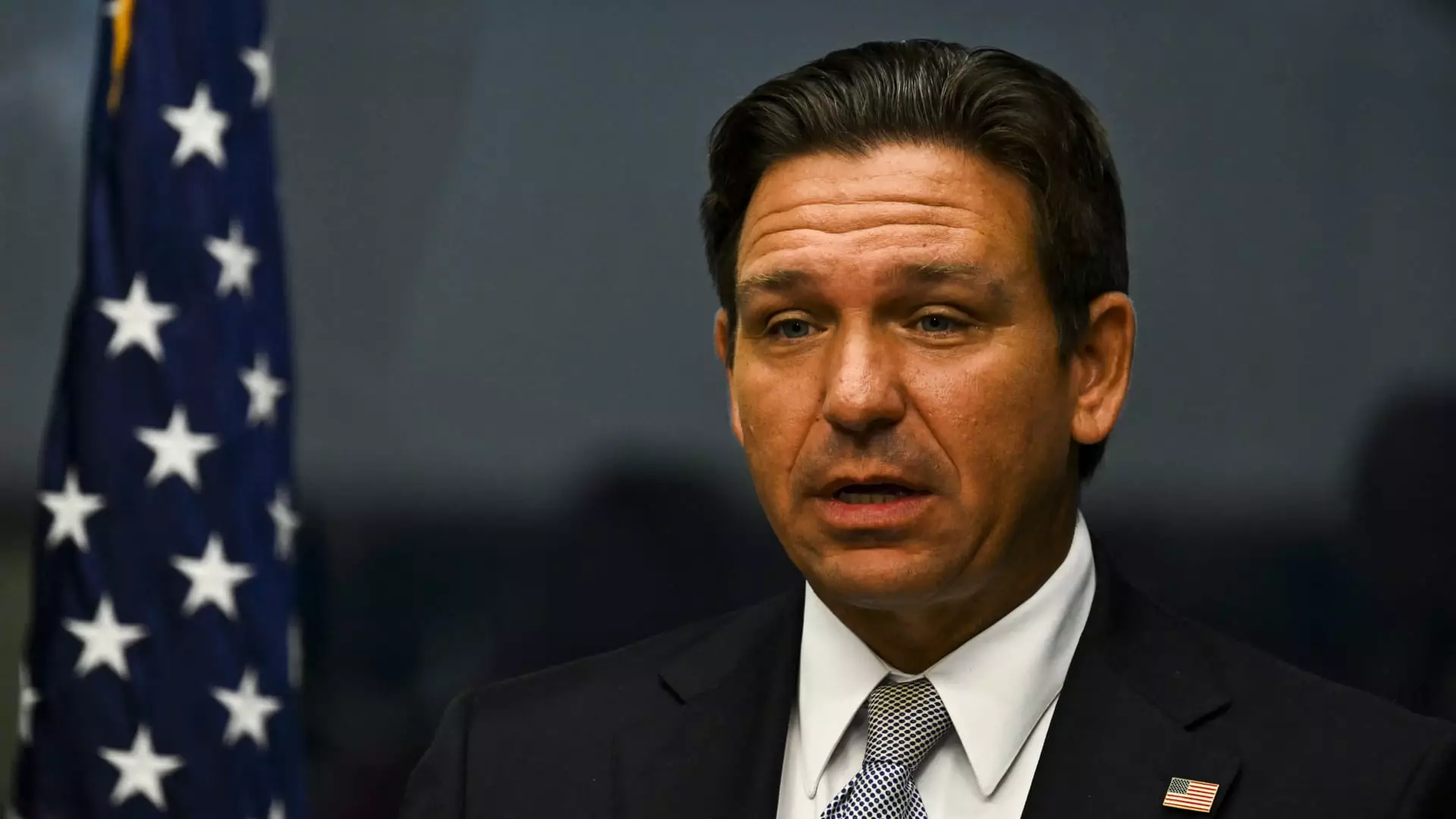The aftermath of natural disasters often lays bare the political dynamics within affected regions, as leaders navigate the turbulence of recovery while also addressing their political affiliations and relationships. In the wake of Hurricane Helene, which devastated parts of Florida, Governor Ron DeSantis has notably avoided communication with Vice President Kamala Harris, further cementing the already prominent partisan divides in American politics.
Hurricane Helene made landfall on September 27, causing significant destruction, particularly in Florida’s Big Bend region. The storm led to unprecedented flooding and damage in various cities, most notably in the heavily populated Tampa area, prompting immediate fears over long-term recovery. Local officials, alongside FEMA, have had their hands full managing the challenges that such a natural disaster entails, from debris removal to restoring public services. The devastation extended beyond Florida and into neighboring states, leading to more than 200 fatalities in the broader Southeast, with North Carolina experiencing some of the most severe flooding in recent memory.
Despite the grim reality faced by Floridians, DeSantis assured the public that his administration had the crisis under control. His comments on storm cleanup indicated a level of confidence that many found to be at odds with the observable chaos resulting from the storm’s aftermath. Meanwhile, the federal government, under President Biden, extended aid to Florida, yet reports indicated a lack of direct communication between the governor and the national leadership.
DeSantis’s decision to disregard Vice President Harris’s outreach following the hurricane speaks volumes about the current political climate. A source quoted in various reports implied that the governor viewed Harris’s calls as potentially politically motivated, a sentiment echoed in comments from his aides. The notion that recovery efforts could be viewed through a political lens exemplifies the complicating factors that leaders face in emergencies.
Moreover, the dynamics of cooperation between state and federal governments appear strained. While many governors from both parties have expressed gratitude toward the Biden administration for federal assistance, DeSantis opted for a more combative stance, suggesting that the federal government’s focus should shift toward North Carolina instead of aiding his own state comprehensively. His approach seems to be setting a precedent for a more partisan handling of disaster relief, framing the narrative in a manner that aligns with a more isolationist political strategy.
While DeSantis was sidestepping calls from national leaders, he did maintain direct contact with FEMA officials, signaling an acknowledgment of the necessity of federal aid even as he pushed back against national involvement from Democratic leaders. In a show of support, DeSantis has also engaged in providing resources to North Carolina through what he called “Operation Blue Ridge,” dispatching members of the Florida National Guard to assist neighboring states, thus fulfilling a duty to help fellow Americans while simultaneously continuing to manage Florida’s recovery efforts.
As Hurricane Milton threatens to strike Florida shortly after Helene’s devastation, the urgency of collaborative efforts in disaster response becomes all the more critical. DeSantis’s choices not only reflect his governance style but also the overarching narrative that could echo in upcoming political contests. In the shadow of climate-related disasters, the capability for national leaders to bridge divides will be essential for effective recovery.
Further complicating the scene, former President Donald Trump’s role in commenting on the hurricanes has added an incendiary element to the ongoing situation. Trump has leveraged his platform to issue statements regarding Hurricane Helene that blur the line between concern and political maneuvering. His remarks, laden with unfounded claims and strong rhetoric, indicate a refusal to follow the unifying protocol typically demanded in the face of disaster.
As the nation scans for indications of camaraderie or division in political action amid crises, the response from leaders like DeSantis becomes a microcosm of broader societal trends. The aftermath of hurricanes exposes not only the need for immediate logistical solutions but also the intricate dance of politics that can either facilitate or hinder genuine recovery efforts.


Leave a Reply